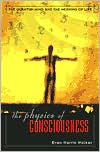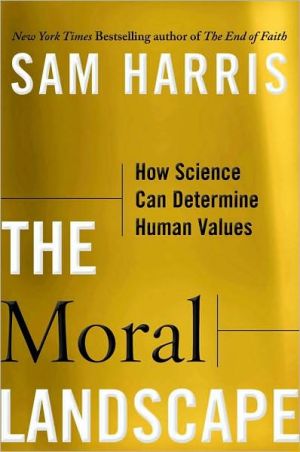The Physics of Consciousness: The Quantum Mind and the Meaning of Life
For decades, neuroscientists, psychologists, and an army of brain researchers have been struggling, in vain, to explain the phenomenon of consciousness. Now there is a clear trail to the answer, and it leads through the dense jungle of quantum physics, Zen, and subjective experience, and arrives at an unexpected destination. In this tour-de-force of scientific investigation, Evan Harris Walker shows how the operation of bizarre yet actual properties of elementary particles support a new and...
Search in google:
How quantum physics will explain the nature of reality and the human mind. Publishers Weekly Walker's ambitious, unorthodox treatise attempts to outline the basis for a new physics, one that recognizes consciousness as a fundamental part of reality. A widely published physicist, mostly in scientific journals, he reports having had a Zen enlightenment experience in 1966 while walking in an open field at the University of Maryland. This propelled him on a quest to rethink quantum mechanics, which he, like Einstein, found incomplete in its picture of an indeterminate cosmos. Electrons tunneling across the human brain's 23.5 trillion synapses create a vast network of potential interactions according to quantum mechanics, so neural impulses are generating our thoughts, emotions and perceptions, according to Walker's theory. Here, he sets forth what he claims is the cornerstone for a science of mind, complete with equations about the brain's workings. The most accessible, core part of the book is its juicy, vigorous account of the revolution in physics engendered by quantum theory and its replacement of the classical Newtonian worldview. Obsessed with mortality and whether the soul survives death (he believes "something of us must survive"), Walker lightens the load with personal interludes in which he reminisces about his high school girlfriend, who died of leukemia very young. Though deeply felt, these at times maudlin recollections feel out of place and detract from his presentation. This digressive, maverick tome, which opens the door to paranormal phenomena and God as "Quantum Mind," will appeal more to serious investigators and philosophical types than to general readers seeking the purported spiritual implications of the new physics. (Feb.) Copyright 2000 Cahners Business Information.\|
Chapter 1: Where Have the Gods All Gone?\ It is easy to imagine fantasy as physical and myth as real. We do it almost every moment. We do this as we dream, as we think, and as we cope with the world about us. But these worlds of fantasy that we form into the solid things around us are the source of our discontent. They inspire our search to find ourselves. In order to put meaning back into our lives, we should recognize illusions for what they are, and we should reach out and touch the fabric of reality.\ Although we know that our common-sense understanding of the world is merely fiction, the illusions stay with us. Science has entirely overturned what we know about the structure of the world. But rather than revising our picture of what reality is, we cling to a collage of incongruent shards. We preserve a false assemblage of images, one pasted upon another, so that we can keep unchanged the mental portrait of ourselves and of the world to which we are accustomed. We go about our business despite the fact that the world on which we base our lives is so much in question, so much a mystery.\ Even when we have searched out some knowledge, and when we have penetrated into the jitterbug world of Mr. Zukav's Wu Li Masters or of Carl Sagan's billions and billions of everything, we are left with only so many more unanswered questions about reality. We want to know. We ask. We search for answers, and we are given a box with little pebbles inside. Is that what the world is? Little pebbles, big pebbles, pebbles in a vast box shimmering and shaking about. Have we our answer? Is reality only a box filled with pebbles? Is that it? Is it all just a little box of rocks that holds infinity inside and stretches to the edge forever?\ We want to ask, "Is there a God? Does my life have meaning and purpose?" Science, we are told, says that even to ask about God is beyond its scope. But this is not true. Either there is no such thing as God, or science-which embodies our ability to reason-must be able to frame the question and provide us with answers.\ We know that science has proved capable of giving us dependable, solid, objective answers. It is the one path that yields answers about the machinery of reality and shows that these answers are valid. When such questions are asked, science must answer.\ To many scientists, however, God is only a memory from childhood: a put-off to questions they once asked themselves. "Where do I come from?" was left unanswered with, "From God." Yet perhaps, the great shortcoming of such questions is that the concept of God is so conventional that it too is apt to be as empty as that box scientists give us-that box filled with the universe and yet empty of meaning to what we have asked: "What is reality, really?"\ THE OLD GODS\ Let us go back to mankind's earliest times. Think of Homo habilis looking out into the cosmos, gazing into the blackness of a fearful night with sparkling wonder spread across the vaulting sky. Think of such a man alone in the night's stillness, looking at the stars. He blinks his eyes and wonders. His mind transcends the immediate hazards of the day, and he sees things in the sky that he cannot reach. He sees for the first time the edge of his own being and looks beyond, perhaps forming the first thoughts of some new understanding, the first thoughts of some new knowledge, and then he falls asleep. Somewhere in that early time, in a pattern of stars seen overhead, in the stirrings of an image in the bush, in a lifeless form that did not move from its forest bier, the first troubled, questioning thoughts came to early man and passed into oblivion.\ But I can see another, later time, a time when another early man lay more sheltered in a cave sleeping. As the moon rolled in its changing orbit, its full face appeared in the entrance to the cave, its light filling the doorway and jolting the primitive being into a frightened awakening. Such an experience would deepen the mystery of the sky, perhaps forming a memory that would last until the experience recurred months later...
AcknowledgmentsixIntroduction11Where Have the Gods All Gone?72It's a Material World153Into Eternity294The Light Fantastic415Jitterbug World, Jitterbug Reality516Hunt for the Tin Man's Heart677Many Worlds, Many Mansions858The Sound of the Temple Bell1159A Golden Brocade14110Satori Physics16111Looking for the Emerald City18512The Red Shoes21513To Sleep, Perchance to Dream23914A Matter of Will25715Quantum Miracles26716From Epicycles to Loops27917The Causal Mind31118A God for Tomorrow327Appendix I339Appendix II343Notes345Index355
\ Publishers Weekly\ - Publisher's Weekly\ Walker's ambitious, unorthodox treatise attempts to outline the basis for a new physics, one that recognizes consciousness as a fundamental part of reality. A widely published physicist, mostly in scientific journals, he reports having had a Zen enlightenment experience in 1966 while walking in an open field at the University of Maryland. This propelled him on a quest to rethink quantum mechanics, which he, like Einstein, found incomplete in its picture of an indeterminate cosmos. Electrons tunneling across the human brain's 23.5 trillion synapses create a vast network of potential interactions according to quantum mechanics, so neural impulses are generating our thoughts, emotions and perceptions, according to Walker's theory. Here, he sets forth what he claims is the cornerstone for a science of mind, complete with equations about the brain's workings. The most accessible, core part of the book is its juicy, vigorous account of the revolution in physics engendered by quantum theory and its replacement of the classical Newtonian worldview. Obsessed with mortality and whether the soul survives death (he believes "something of us must survive"), Walker lightens the load with personal interludes in which he reminisces about his high school girlfriend, who died of leukemia very young. Though deeply felt, these at times maudlin recollections feel out of place and detract from his presentation. This digressive, maverick tome, which opens the door to paranormal phenomena and God as "Quantum Mind," will appeal more to serious investigators and philosophical types than to general readers seeking the purported spiritual implications of the new physics. (Feb.) Copyright 2000 Cahners Business Information.\|\ \ \ \ \ Library JournalThe nature of consciousness, which perennially troubles the minds of scientists and philosophers, is the subject of an ever-growing body of literature. Two of the latest entries approach the topic from different perspectives. Glynn, a professor of physiology and head of the Physiological Laboratory at Cambridge, offers a comprehensive summary of what we know about the brain--both its evolution and its mechanisms. Among the topics he covers are natural selection, molecular evolution, nerves and the nervous system, sensory perception, and the specific structures responsible for our intellect. Using the mechanisms involved in vision and speech as models, Glynn skillfully describes various neurological deficiencies that can lead to "disordered seeing" and problems with the use of language. He carefully distinguishes what we know through experimental evidence from what we know through the observation of patients with neurological damage. He also describes some of the major theories that attempt to explain why these structures arose. While his book concentrates on the structures that make up the mind, Glynn is well aware that some physical events appear explicable only in terms of conscious mental events--a situation that conflicts with the laws of modern physics. Only briefly, however, does he consider the various approaches that have been taken to deal with the issues of mind/body and free will. In contrast, this is the primary focus of The Physics of Consciousness. After reviewing the fundamentals of classic physics, Walker (who has a Ph.D. in physics) summarizes elements of the new physics in which our knowledge of space, time, matter, and energy are all dependent on the moment ofobservation. Walker explores the meaning of consciousness as a characteristic of the observer. In this context both the observer and the act of measurement are critical. In essence, Walker leads his reader on a journey through his concept of a "quantum mind," which can both affect matter (including other minds) and can be affected by other distant matter/minds. To break up what would otherwise be an extremely dense text, Walker also relates the very touching story of the loss of his high-school sweetheart to leukemia. Indeed, it is his memory of their relationship that drives Walker to seek an understanding of ultimate reality. At times, he has a tendency to be dogmatic--as when he concludes, "our consciousness, our mind, and the will of God are the same mind." While An Anatomy of Thought is appropriate for most academic libraries, the Physics of Consciousness will be most accessible to readers with some knowledge of advanced physics.--Laurie Bartolini, Illinois State Lib., Springfield Copyright 2000 Cahners Business Information.\\\ \ \ BooknewsPart memoir, part meditation, part analysis<-->by a scientist (Ph.D. in physics, U. of Maryland, 1964) who has published for both scientific as well as popular audiences. Annotation c. Book News, Inc., Portland, OR (booknews.com)\ \








